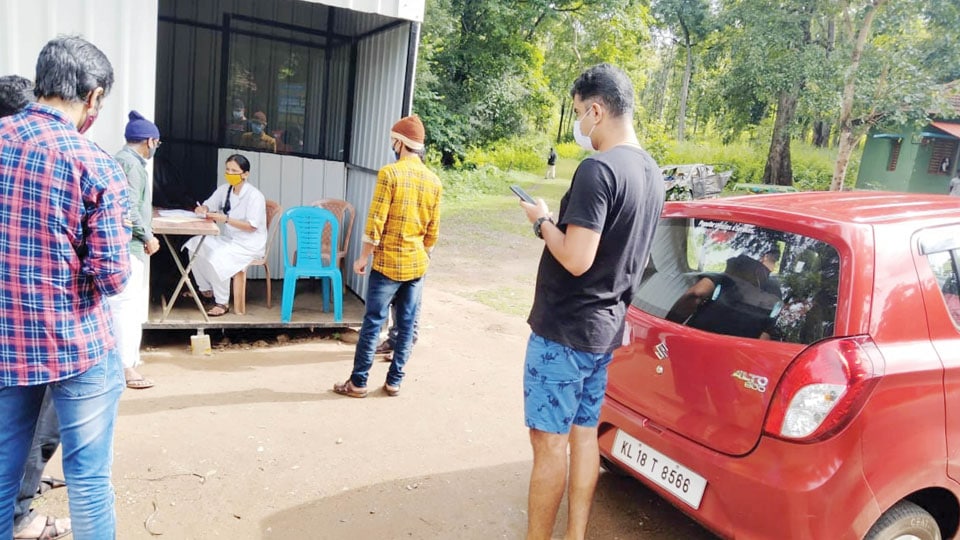Bengaluru: Karnataka has intensified checking at its border with Kerala including Mysuru, Chamarajanagar, Kodagu, Dakshina Kannada, and Udupi after cases of Zika virus emerged in the southern State. Tight vigil is being maintained at 14 strategic points and check-posts and vehicle checking have been intensified.
Kerala has so far reported 15 cases of Zika virus. While 14 cases were confirmed on Thursday, one more was reported on Saturday. All the cases are from Thiruvananthapuram district. The Central Government has sent a team of experts to Kerala after the outbreak was reported.
The Karnataka Health Department has also instructed officials to intensify vector control measures. The Aedes aegypti variety of the mosquito, which is a vector of Dengue, Chikungunya as well as Zika, is prevalent in Karnataka leading to an increased surveillance in the rural areas. The urban areas too will undergo surveillance every fortnight on a war-footing, the State Government said. All the border districts authorities have been asked to take steps to take preventive measures at the check-posts with Negative RT-PCR Reports mandatory for the people coming to Karnataka.
“As monsoon season allows proliferation of Aedes mosquitoes, surveillance should be carried out in rural and urban areas on a war-footing,” said State Health Commissioner Trilok Chandra. He directed authorities to dispose of solid waste to prevent Aedes breeding in peri-domestic areas. “The vector management should include surveillance of larvae, biological and chemical control at household, community and institutional levels,” he added. District authorities have been tasked to conduct Aedes larval surveillance and source reduction activities in airports, sea ports and in rural and urban civic wards.
Routine surveillance
“ASHAs and Health Assistants have been directed to intensify the routine surveillance activity in rural areas and fortnightly surveillance activity in urban areas. Municipal bodies have been asked to ensure effective disposal of solid waste to prevent mosquito breeding in peri-domestic spots,” the Commissioner said
Travel history of those arriving at the borders will be checked and the samples collected from suspected cases should be sent to National Institute of Virology (NIV) in Bengaluru for testing. The Zika Virus Disease (ZVD) presents with symptoms like fever, rashes, conjunctivitis and joint pain. However, few people die from ZVD and only one in five develops symptoms.
The symptoms of the disease were first identified in monkeys in Uganda in 1947 and the first human case came from Nigeria in 1954. It leads to a shrunken brain in children and a rare auto-immune disease called Guillain-Barre syndrome.








Recent Comments